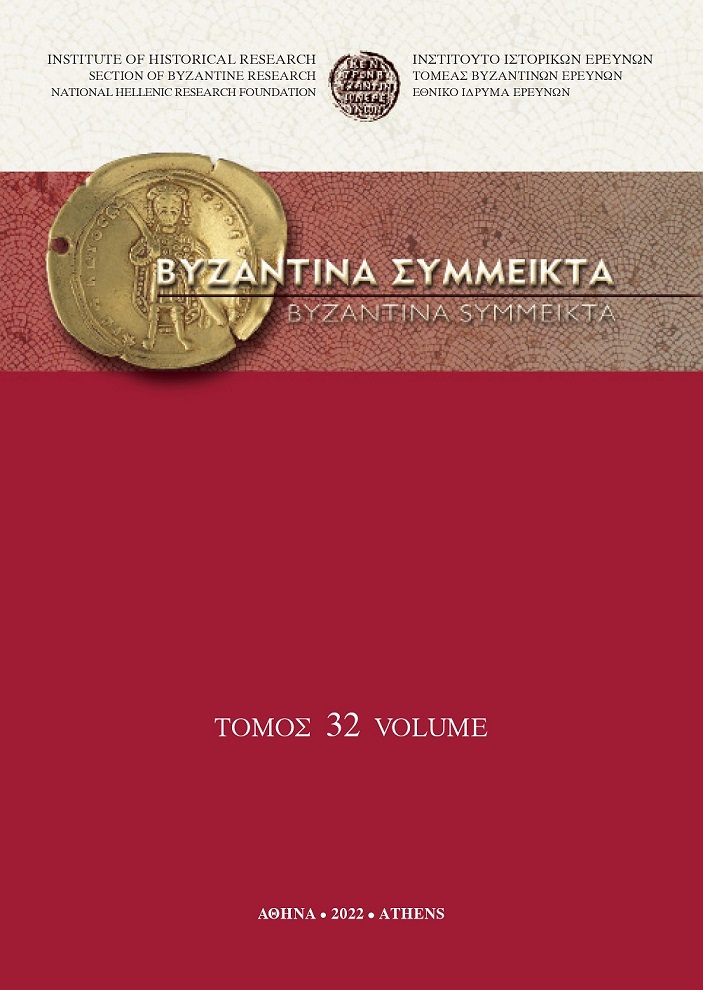Χρήσεις του προσωνυμίου «Γαλιλαίοι» και του εθνωνύμου «¨Ελλην» στο έργο του Ιουλιανού

Abstract
After the first half of the fourth century, the Christian doctrine appeared to
be the indisputable, sovereign cult, in the religious conflicts that took place
in the vast acreage of Late Roman Empire. Not only it prevailed upon the
various pagan cults of the empire, but it also ended up as the imperial cult.
Earlier this period, the ethnonym “Hellen” adopted a novice, “religious-
based” meaning, designating “pagans”, which would prevail among others
in the following centuries.
Emperor Julian’s reign (361-363) comprised a brief disruption of the
inevitable domination of Christianity. In the present paper, we study the
functions of the appellative “Galilean” and the ethnonym “Hellen” in the
Julianic corpus, in order to contribute to the apprehension of the Julianic
philosophical and religious thought, as well as to illuminate undiscernible
shades in the functions of the terms under study
Article Details
- How to Cite
-
ΘΕΟΔΩΡΙΔΗΣ Ι. (2022). Χρήσεις του προσωνυμίου «Γαλιλαίοι» και του εθνωνύμου «¨Ελλην» στο έργο του Ιουλιανού. Byzantina Symmeikta, 32, 241–273. https://doi.org/10.12681/byzsym.28441
- Issue
- ΒΥΖΑΝΤΙΝΑ SΥΜΜΕΙΚΤΑ 32
- Section
- Articles

This work is licensed under a Creative Commons Attribution-NonCommercial-ShareAlike 4.0 International License.
Copyright: The copyright for articles in this journal is retained by the author(s), with first publication rights granted to the journal. By virtue of their appearance in this open access journal, articles are free to use (with the exception of the non-granted right to make derivative works) with proper attribution for non-commercial uses (licence Creative Commons 4.0). NHRF retains the worldwide right to reproduce, display, distribute, and use articles published in BYZANTINA SYMMEIKTA in all formats and media, either separately or as part of collective works for the full term of copyright. This includes but is not limited to the right to publish articles in an issue of the Journal, copy and distribute individual reprints of the articles, authorize reproduction of articles in their entirety in another NHRF publication, and authorize reproduction and distribution of articles or abstracts thereof by means of computerized retrieval systems.


